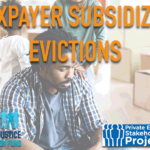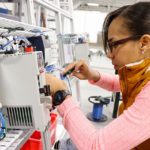FOR IMMEDIATE RELEASE
October 17, 2017
Contact:
Liz Cattaneo, liz(at)jwj.org, 202-393-1044 x104
As CEO Jeff Bezos sets terms of HQ2 without input of cities expected to house, build & fund the expansion, an open letter reveals nationwide opposition
As Amazon sparks intense competition between cities for the tech giant’s second headquarters (HQ2), civic groups from around the country are calling for further scrutiny over Amazon’s laundry list of demands which put corporate tax cuts and profits above the needs of working-class communities and families. Groups like Partnership for Working Families, Stand Up Nashville and Warehouse Workers of Chicago, are demanding an open and transparent “people’s RFP” process that requires Amazon to respect, support and invest in city workers, taxpayer funds, infrastructure, and the local economy and culture.
Seventy-three organizations representing community members, warehouse and service workers and faith communities across 21 states have signed onto an open letter to Amazon CEO Jeff Bezos in the last week. The letter outlines demands that include minimum standards for inclusion and diversity in the workforce, living wages, investment in transit, housing and infrastructure, which they see as non-negotiable should their city be chosen as the site of Amazon’s HQ2. This comes as the organizations develop action plans to demand accountability and inclusion in the selection process.
“You have your list of things you’re looking for from cities—but we live in these cities, and we’ve got some expectations of our own for Amazon,” the letter says. “We love jobs, we love technology, and we love convenience—but what you’re looking for will impact every part of our cities. We built these cities, and we want to make sure they remain ours.”
The signers of the letter anticipate that the jobs Amazon brings to its second headquarters will fall into four categories: construction, administration, logistics and permanent campus workers, including service workers. In all these categories, community leaders want to see local hiring, living wages and strong benefits, opportunities for disadvantaged groups of workers, respect for the right to form or join a union, and protections for whistleblowers.
The letter lays out additional expectations:
- If you want a highly-educated local talent pool you must pay all of your property taxes to fund our schools, public safety, infrastructure and other public goods and services
- Support transit investment that serves us all, especially communities that rely on public transit
- Make a significant annual contribution to supporting the development and preservation of affordable housing in our city
- Strengthen neighboring small businesses that may be impacted by development
- Commit to open-sourcing the process of reaching a deal with our whole community, which means engaging in meaningful negotiation with community stakeholders
Amazon’s open call for proposals last month set off a race to the bottom from coast to coast, playing states and localities against each other for maximum public handouts. Advocates and community leaders are putting Amazon on notice and asking their elected officials to take a critical look at Amazon’s requirements to determine whether taxpayer dollars are better invested in community development that benefits constituents in the long term.
A subsidy tracker from Good Jobs First shows the company received nearly $1.2 billion in subsidies over the course of its expansion, including $177 million in 2017 alone, according to public disclosures. Many states and localities have provided undisclosed subsidies to Amazon as well. This week, local business owners in Minneapolis and community groups in New York City rallied to demand their elected officials not offer Amazon tax breaks to host the new headquarters.
“Amazon’s empire was first built by dodging the collection of billions in sales taxes to gain market share from Main Street merchants. Then, as its Prime model evolved and it had to build warehouses everywhere, it created an aggressive tax-break department,” said Greg LeRoy, executive director of Good Jobs First. “Now, it expects another taxpayer gift for a headquarters? No, thank you; it’s payback time.”
Amazon also has a track record of creating unsafe working conditions, union-busting and outsourcing jobs. Just last month, two Amazon workers were killed on the job within a single week in warehouses in Pennsylvania and Indiana. And the home of their global headquarters, Seattle, has seen housing prices skyrocket faster than anywhere else in the country as cost of living soars—factors contributing to 3rd largest homeless population of any U.S. city.
““The dirty secret behind Amazon’s expansive growth is that as it displaces sales at other businesses, it destroys more jobs than it creates,” said Sarita Gupta, executive director of Jobs With Justice, a member of the Our Neighborhoods, Our Future coalition. “And as Amazon takes over more of the economy, the corporation undercuts communities, and treats hundreds of thousands of women and men who work in its warehouses, and deliver goods to our doorsteps, as expendable. There’s no excuse for using taxpayer funds to roll out the red carpet for a corporation that benefits from killing jobs or creating unsustainable ones. Public officials and communities must rewrite the rules to stand up to Amazon so our economy can work for everyone.”
“We know what’s possible when local communities drive development — we can create living wage jobs, preserve diversity, and prevent displacement,” said Nikki Fortunato Bas, executive director of the Partnership for Working Families, also a member of the Our Neighborhoods, Our Future coalition. “On the flip side, we’ve seen the terrible toll in some cities of giving corporations public subsidies with no accountability. Amazon has a golden opportunity right now to reduce the inequality gap, and cities have a responsibility to demand more from mega developers. Our neighborhoods should decide our future.”
The letter also says: The things about our cities that make you want to move here are the same reasons many of us live here—we have great systems of higher education, museums, and infrastructure that helps move people and things from one place to another. But we got that stuff by collectively paying for it, through taxes, and we’re expecting Amazon to pay your fair share if you end up being our neighbor.
Community organizations see an opportunity for Amazon to set a better example, if the company is willing to listen to the voices of people who would be most impacted by a new tech campus in their town.
The full text of the letter is available at ourhq2wishlist.org.
###
Partnership for Working Families is a national network of 17 powerful city and regional affiliate groups based in major urban areas across the country. We advocate for and support policies and movements that help build more just and sustainable communities where we live and work. We strive to take lessons learned at the local level and apply them to the national conversation to build a framework for addressing climate change, inequality, racial and social injustice. Learn more at forworkingfamilies.org
Our Neighborhoods Our Future is a coalition working to win the infrastructure our communities need. Around the country families worry about the safety of their drinking water, schools and parks crumble and public transportation projects sit stalled and underfunded. Our communities need access to high-speed internet connections, modern energy systems and reliable child care. We can invest in ways that raise the quality of life for everyone or we can use tax dollars on projects that benefit a few and increase the inequality that hurts working people.
Jobs With Justice is a national network expanding people’s ability to come together to improve their workplaces, their communities, and their lives. We create solutions to the problems working people face by leading campaigns, changing the conversation and moving labor, community, student and faith voices to action. We win real change at the national and local levels by challenging corporate greed and demanding an economy that works for all.



